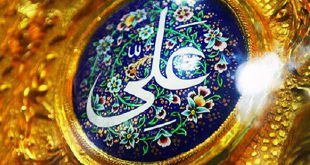The present volume is intended to historicize the question of religious authority in Muslim Central Eurasia, through historical and anthropological case studies about the exercise, negotiation, or institutionalization of authority, from the nineteenth to the early twenty-first century.
Thirty years after the fall of Soviet power, we are beginning to understand that the experience of Muslims in the USSR continued patterns of adaptation and negotiation known from Muslim history in the lands that became the Soviet Union, and in other regions as well; we can also now understand that the long history of Muslims situating religious authority locally, in the various regions that came under Soviet rule, in fact continued through the Soviet era into post-Soviet times.
The present volume is intended to historicize the question of religious authority in Muslim Central Eurasia, through historical and anthropological case studies about the exercise, negotiation, or institutionalization of authority, from the nineteenth to the early twenty-first century; it thus seeks to frame Islamic religious history in the areas shaped by Russian and Soviet rule in terms of issues relevant to Muslims themselves, as Muslims, rather than solely in terms of questions of colonial rule.
Religious authority – namely, the recognized capacity of an individual or a group or an institution to sanction the undertaking of religious acts, both private and public – affects many Muslims (and non-Muslims) in their everyday lives as well as in exceptional circumstances. Whether derived from culturally accepted traditions, from legal and bureaucratic norms, from charismatic or successful individuals, or from unique personal or communal experiences, religious authority has an enormous impact on the behavior of Muslims everywhere. Whether invested in centralized institutions or in diffuse and highly localized phenomena, religious authority may be understood as an arena of contestation that inevitably overlaps with issues of broad political and social consequence, but reaches into intimate personal spaces as well, and the many spheres of human experience in which religious authority may be activated are matched by a diversity of ways of asserting it and appealing to it. Whether concentrated in a few centers of authority or highly decentralized, or even seemingly fragmented, religious authority serves as a paradigmatic lens through which to examine the full range of religious activity among Muslims, past and present.
Recently, there seems to be a general perception of a growing fragmentation and decentralization of religious authority in the Muslim world. No particular locale or community appears to be unaffected by the phenomenon. Internet sites, videos, “social” media, TV programs, ad-hoc establishments, itinerant carriers of religious messages, everyone and anyone now seems to be able to cast himself or herself as an authority-wielding Muslim. While a longer arc of decentralization might be traced for authority in the Muslim world, developments in the last two centuries seem, to some, to have hastened the process considerably.
In this context, it seems that the “crisis” of the scholars of Islam (ʿulamāʾ) has been given the most attention, particularly when the state constrains the scope of their functions and controls their juridical output. Intensifying appeals from the scholars, judges, imams, and leaders of official religious boards and organizations who are widely regarded as the guardians, transmitters and interpreters of religious knowledge, doctrine, and law to regulate Islam (and, in essence, to reclaim their increasingly diminishing power) seem to fall on deaf ears. The ʿulamāʾs anxiety over the fragmentation of religious authority is particularly noticeable in their characterization of the trend in terms of fawḍā – namely, chaos or anarchy.
Attempts to counter this phenomenon have been many, and the reaction by ʿulamāʾ all over the world to – what amounts to, practically – the defiance of their authority serves to exemplify how potent this issue has become. The so-called 2005 Amman Message (Risālat Ammān), for example, was a reaction to widespread “disobedience” concerning Muslim identity and the treatment of non-Muslims. One of the main issues of concern was the lack of control over who could issue legal opinions ( fatwās) and what such opinions should entail.
Calls to regulate fatwās have been growing in conjunction with what mainstream officials consider al-fatāwa al-shādhdha (shādhdha ranges in meaning from isolated, uncommon, irregular or odd to even deviant or abnormal).
Contributors are Sergei Abashin, Ulfat Abdurasulov, Bakhtiyar Babajanov, Devin DeWeese, Allen J. Frank, Benjamin Gatling, Agnès Kefeli, Paolo Sartori, Wendell Schwab, Pavel Shabley, Shamil Shikhaliev, and William A. Wood.
About the Editors
Paolo Sartori, Ph.D. (2006), University of Rome ‘la Sapienza’, is Senior Research Associate at the Austrian Academy of Sciences, where he is also Chairman of the Committee for the Study of Islam in Central Eurasia (1552-2000s). He is the author of Visions of Justice: Sharia and Cultural Change in Russian Central Asia (Leiden, 2016).
Devin DeWeese, Ph.D. (1985), Indiana University, is Professor Emeritus of Central Eurasian Studies at Indiana University. He is the author (with Ashirbek Muminov) of Islamization and Sacred Lineages in Central Asia, vol. I: Opening the Way for Islam: The Ishaq Bab Narrative, 14th-19th Centuries (2013).
Bibliographic Information
Title: Muslim Religious Authority in Central Eurasia
Editor (s): Ron Sela, Paolo Sartori, and Devin DeWeese
Publisher: Brill Academic Pub
Length: 360 Pages
ISBN: 978-90-04-52709-6
Pub. Date: November 24, 2022
 Ijtihad Network Being Wise and Faithful Muslim in the Contemporary World
Ijtihad Network Being Wise and Faithful Muslim in the Contemporary World
